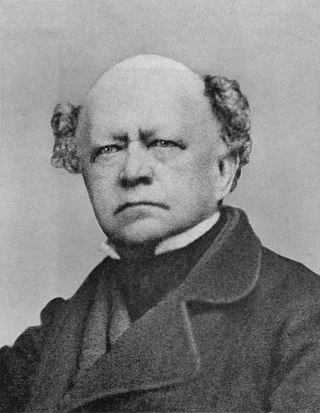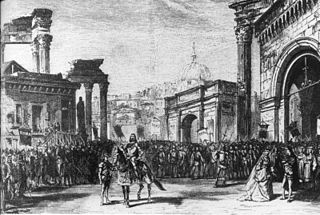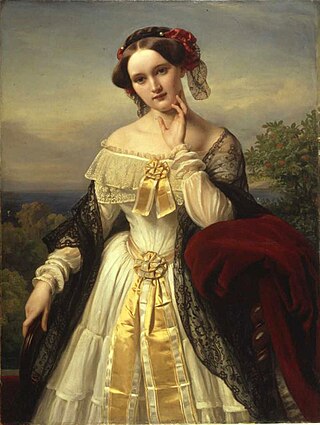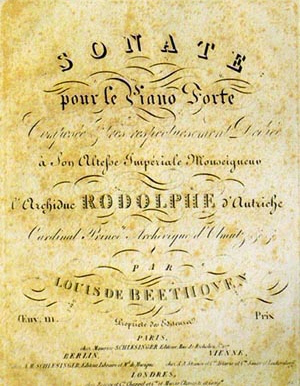External links
- Listing of the Wagner-Werk-Verzeichnis (in German)
This is a sortable list of compositions by Richard Wagner.
| WWV [1] | Form or genre | Title |
|---|---|---|
Chamber works | ||
| 4 | chamber music | String Quartet in D major (1829; lost; occasionally mistaken for the Starnberg Quartet, no evidence of the Starnberg Quartet's existence survives) [2] [3] |
Orchestral works | ||
Symphonies | ||
| 29 | orchestral | Symphony in C major (1832) |
| 35 | orchestral | Symphony in E major (1834; uncompleted; first movement finished; second movement unfinished) [4] |
| 78 | orchestral | Symphonies (1846-47; uncompleted; sketches exist for at least two symphonies) [4] |
Overture | ||
| 10 | orchestral | Overture in B-flat major ("Paukenschlag-Ouvertüre") (1830; lost) |
| 11 | orchestral | Politische Ouvertüre (c. 1830; lost and likely uncompleted [4] ) |
| 12 | orchestral | Overture to Schiller's Die Braut von Messina (1830; lost?) |
| 14 | orchestral | Overture in C major (1830; lost) |
| 17 | orchestral | Overture in E-flat major (1831; lost and likely uncompleted [4] ) |
| 20 | orchestral | Concert Overture No. 1 in D minor (1831) |
| 24 | orchestral | Overture in E minor and incidental music to Raupach's König Enzio (1832; only the Overture survives) [4] |
| 27 | orchestral | Concert Overture No. 2 in C major (1832) [4] |
| 37 | orchestral | Overture and incidental music to Guido Theodor Apel's historic drama Columbus (1834-35; only the Overture survives) [4] |
| 39 | orchestral | Polonia Overture in C major (1836) |
| 42 | orchestral | Rule Britannia Overture in D major (1837) |
| 59 | orchestral | Eine Faust-Ouvertüre (1855, second version; 1840, first version originally conceived as the first movement to a Faust Symphony) [4] |
Other orchestral works | ||
| 13 | orchestral | Orchestral work in E minor (c. 1830; fragment) |
| 25 | orchestral | Entreactes tragiques No. 1 in D major, No. 2 in C minor (c. 1832) [4] |
| 73 | orchestral | Trauermusik (Funeral Music), on motifs from Weber's Euryanthe (1844) (for large wind band) |
| 91B | orchestral | Träume. Version for violin and chamber orchestra (1857) |
| 97 | orchestral | Huldigungsmarsch (1864, version for military band; 1871, orchestral version) [4] |
| 98 | orchestral | Romeo und Julie (1868; sketches / uncompleted) [4] |
| 103 | orchestral | Siegfried Idyll (1870) |
| 104 | orchestral | Kaisermarsch (1871) |
| 107 | orchestral | Plans for overtures and symphonies (1874–83; uncompleted) [4] |
| 110 | orchestral | Großer Festmarsch zur Eröffnung der hundertjährigen Gedenkfeier der Unabhängigkeitserklärung der Vereinigten Staaten (Grand Festive March for the Opening of the Centennial Celebration of the Declaration of Independence of the United States of America) (1876) |
Piano works and Lieder | ||
Piano | ||
| 2 | piano | Sonata in D minor (1829; [4] lost) [5] [6] |
| 5 | piano | Sonata in F minor (1829; [4] lost) [7] [6] |
| 16 | piano 4-hands | Sonata in B-flat major, for four hands (1831; [4] lost) [6] |
| 21 | piano | Sonata in B-flat major, Op. 1 (1831) |
| 22 | piano | Fantasia in F-sharp minor (1831) |
| 23A | piano | Polonaise for piano (1831–32) |
| 23B | piano 4-hands | Polonaise for piano, four hands (1831-32) [4] |
| 26 | piano | Grand Sonata in A major (1832) |
| 64 | piano | Albumblatt für Ernst Benedikt Kietz: "Lied ohne Worte" (c. 1840) [4] |
| 84 | piano | Polka (1853) |
| 85 | piano | Eine Sonate für das Album von Frau Mathilde Wesendonck (1853) |
| 88 | piano | Züricher Vielliebchen-Walzer (1854) |
| 93 | piano | Elegy in A-flat major (c. 1858; rev. 1881) [4] |
| 94 | piano | In the album of Fürstin M (1861) |
| 95 | piano | Ankunft bei den schwarzen Schwänen (1861) |
| 108 | piano | Albumblatt für Frau Betty Schott (1875) |
Lieder | ||
| 7 | Lied | Lieder (1828–30; sketches / drafts) |
| 15 | Lied | Seven Compositions on Goethe's Faust (1831) [6] |
| 30 | Lied | Glockentöne (Abendglocken) (1832; lost) [4] |
| 50 | Lied | "Der Tannenbaum" (c. 1838) [4] |
| 53 | Lied | Dors mon enfant (1839) [4] |
| 54 | Lied | Extase (1839; [4] fragment) |
| 55 | Lied | Attente (1839) |
| 56 | Lied | La tombe dit à rose (1839; [4] fragment) |
| 57 | Lied | Mignonne (1839) [4] |
| 58 | Lied | Tout n'est qu'images fugitives (Soupir) (1839) [4] |
| 60 | Lied | Les deux grenadiers (1839-40) [4] |
| 61 | Lied | Adieux de Marie Stuart (1840) [4] |
| 91 | Lied | Wesendonck Lieder (1858, third version; 1857-58, second and first version) [4] |
| 92 | Lied | Es ist bestimmt in Gottes Rat (c. 1858; draft) |
| 105 | Lied | Der Worte viele sind gemacht [4] (1871) |
Vocal works | ||
Arias | ||
| 3 | aria | Aria (1829; lost) |
| 8 | aria | Aria for soprano and orchestra (early 1830?; lost) |
| 28 | aria | Scene and Aria for soprano and orchestra (1832; lost) [4] |
| 33 | aria | Aria No. 15 (Aubry) "Wie ein schöner Frühlingsmorgen" from the opera Der Vampyr by Heinrich Marschner with a new allegro "Doch jetzt, wohin ich blicke, umgibt mich Schreckensnacht" (1833) [4] |
| 43 | aria | "Sanfte Wehmut will sich regen". Aria for bass and orchestra. Excerpt from the opera Mary, Max und Michel by Carl Blum (1837) [4] |
| 45 | aria | Bass aria from Die Schweizer Familie (c. 1837; lost) [4] |
| 52 | aria | "Norma il predisse, o Druidi", aria for bass, male chorus, and orchestra for the opera Norma by Vincenzo Bellini (1839) [4] |
Opera | ||
| 6 | Oper | Pastoral opera (unnamed) [4] (early 1830?; lost) |
| 31 | Oper | Die Hochzeit (1832–33; unfinished) |
| 32 | Große romantische Oper | Die Feen (1833-1834; rev. 1834) [4] |
| 38 | Große komische Oper | Das Liebesverbot oder Die Novize von Palermo (1835–36) |
| 40 | Große Oper | Die hohe Braut (c. 1836-42; [4] libretto completed; little to no music composed) [8] |
| 48 | komische Oper | Männerlist größer als Frauenlist, oder Die glückliche Bärenfamilie (c. 1838; [4] libretto completed; only three musical numbers completed, all in piano score) |
| 49 | Große tragische Oper | Rienzi, der letzte der Tribunen (1837-1840; rev. 1843-1844, 1847) [4] |
| 63 | romantische Oper | Der fliegende Holländer (1840–41; rev. 1846, 1852, 1860 [4] ) |
| 66 | Oper | Die Sarazenin (c. 1841-43; libretto drafted; no music composed) [4] |
| 67 | Oper | Die Bergwerke zu Falun (1842; libretto drafted; no music composed) [4] |
| 70 | Große romantische Oper | Tannhäuser und der Sängerkrieg auf Wartburg (1842–45; rev. 1845, 1847, 1851, 1860-61, 1865, 1875 [4] ) |
| 75 | romantische Oper | Lohengrin (1845-1848) [4] |
| 76 | Oper ? | Friedrich I. (1846-49; sketches only) [4] |
| 80 | Oper ? | Jesus of Nazareth (1849; scenario and 1 musical sketch) |
| 81 | Oper ? | Achilleus (1849–50; only prose drafts exist [4] ) |
| 82 | Heldenoper | Wieland der Schmied (1849–50; only prose drafts exist [4] ) |
| 86A | Bühnenfestspiel, Vorabend | Das Rheingold (1851–54) [4] |
| 86B | Bühnenfestspiel, erster Tag | Die Walküre (1851–56) [4] |
| 86C | Bühnenfestspiel, zweiter Tag | Siegfried (1851–71) [4] |
| 86D | Bühnenfestspiel, dritter Tag | Götterdämmerung (1848–74) [4] |
| 89 | Oper | Die Sieger (1856; only a short prose sketch exists [4] ) |
| 90 | Handlung | Tristan und Isolde (1854–59) [4] |
| 96 | Oper | Die Meistersinger von Nürnberg (1845–67) |
| 99 | Oper ? | Luther's Wedding (1868; only prose sketches exist; [4] no music composed [4] ) |
| 111 | Bühnenweihfestspiel | Parsifal (1857–82) [4] |
Other vocal works | ||
| 1 | Trauerspiel | Leubald (1826–28; music lost, libretto survives) |
| 19A | choral | Study fugue "Dein ist das Reich" (1831–32) |
| 19B | Double Fugue (1831–32; no instrumentation or text set) | |
| 36 | choral [4] | Incidental music for Wilhelm Schmale's one-act allegorical play Beim Antritt des neuen Jahres 1835 (1834) [4] |
| 41 | incidental music | Incidental music to J. Singer's play Die letzte Heidenverschwörung in Preußen oder Der Deutsche Ritterorden in Königsberg (c. 1837; fragment; lost) [4] |
| 44 | choral | Folk hymn Nicolay (1837) [4] |
| 51 | choral | Gesang am Grabe (Funeral Dirge) (1838-39; lost) [4] |
| 65 | vocal orchestral | "Descendons gaiement la courtille". Contribution to the Vaudeville-Ballet-Pantomime La descente de la courtille by Th. Marion Dumersan and Ch.-Désiré Dupeuty, for chorus and orchestra (c. 1841) [4] |
| 68A | choral | Festgesang Der Tag erscheint (1843; male chorus a cappella, TTBB) [4] |
| 68B | choral | Festgesang Der Tag erscheint (c. 1843; male chorus with brass instruments, 4hn, 4tpt, 3 trbn, bass tuba) [4] |
| 69 | choral | Das Liebesmahl der Apostel (1843) [4] |
| 71 | choral | Gruß seiner Treuen an Friedrich August (II. von Sachsen) (1844) [4] |
| 72 | choral | An Webers Grabe (1844) |
| 100 | Lustspiel | Ein Lustspiel in einem Akt (1868; prose draft [4] ) |
| 101 | choral | Wahlspruch für die Deutsche Feuerwehr (1869) |
| 102 | Lustspiel in antiker Manier | Eine Kapitulation (1870; unfinished [4] ) |
| 106 | choral | Kinderkatechismus zu Kosels Geburtstag (1873) |
| 112 | choral [4] | Willkommen in Wahnfried, du heil'ger Christ (1877) |
| 113 | choral [4] | Ihr Kinder, geschwinde, geschwinde (c. 1880) [4] |
Miscellaneous | ||
| 18 | arrangement | Piano reduction of Haydn's Symphony No. 103 in E-flat major (1831; lost) |
| 34 | arrangement | Instrumentation of a cavatina from Bellini's Il pirata (1833; lost) [4] |
| 46A | arrangement | Bellini, Norma, retouching of orchestration (c. 1837) [4] |
| 46B | arrangement | Giacomo Meyerbeer: Robert der Teufel No. 18 (C) Cavatina transcribed for strings [4] (c. 1838) [4] |
| 46C | arrangement | Carl Maria von Weber: Euryanthe No. 18 Hunting chorus and reorchestration (c. 1839) [4] |
| 46D | arrangement | Fromental Halévy: Le Guitarrero for several instruments |
| 46E | arrangement | Arrangements of Halévy's La reine de Chypre |
| 46F | arrangement | Daniel Auber: Zanetta ou Jouer avec le feu, Arrangement for flute and string trio, Suites No. 1 and 2 |
| 47 | arrangement | Gioachino Rossini: Les soirées musicales, No. 12 Duet "Li Marinari", instrumentation (c. 1838) [4] |
| 62A | arrangement | Various composers, suites for the cornet à pistons (c. 1840; lost) [4] |
| 62B | arrangement | Arrangements from Gaetano Donizetti's opera La favorite (c. 1840-1842) [4] |
| 62C | arrangement | Henri Herz: Grande Fantaisie sur La Romanesca fameux air de danse du XVI siècle, Op. 111. Arrangement for piano four hands (c. 1840-1842) [4] |
| 62D | arrangement | Arrangements of Fromental Halévy's opera Le Guitarrero (c. 1840-42) [4] |
| 62E | arrangement | Arrangements of Fromental Halévy's opera in five acts La reine de Chypre (c. 1840-1842) [4] |
| 62F | arrangement | Arrangements of Daniel Auber's opera Zanetta for flute quartet (c. 1840-1842) [4] |
| 74 | arrangement | Orchestration of Spontini's La vestale (c. 1844) [4] |
| 77 | arrangement | Arrangement of Christoph Willibald Gluck's tragic opera Iphigénie en Aulide (c. 1846-47) [4] |
| 79 | arrangement | Giovanni Pierluigi da Palestrina: Stabat mater (c. 1848) [4] |
| 83 | arrangement | Arrangement of Mozart's Don Giovanni (1850; lost [4] ) |
| 87 | arrangement | Konzertschluß to the Overture to Gluck's Iphigenie in Aulis (c. 1854) [4] |
| 109 | arrangement | Arrangement of the Waltz Wein, Weib und Gesang by Johann Strauss II (1875) |
Sources

Ludwig Alois Friedrich Ritter von Köchel was an Austrian musicologist, writer, composer, botanist, and publisher. He is best known for cataloguing the works of Mozart and originating the 'KV-numbers' by which they are known.

Wilhelm Richard Wagner was a German composer, theatre director, essayist, and conductor who is chiefly known for his operas. Unlike most opera composers, Wagner wrote both the libretto and the music for each of his stage works. Initially establishing his reputation as a composer of works in the romantic vein of Carl Maria von Weber and Giacomo Meyerbeer, Wagner revolutionised opera through his concept of the Gesamtkunstwerk, by which he sought to synthesise the poetic, visual, musical and dramatic arts, with music subsidiary to drama. The drama was to be presented as a continuously sung narrative, without conventional operatic structures like arias and recitatives. He described this vision in a series of essays published between 1849 and 1852. Wagner realised these ideas most fully in the first half of the 16-hour, four-opera cycle Der Ring des Nibelungen.
In music, the opus number is the "work number" that is assigned to a musical composition, or to a set of compositions, to indicate the chronological order of the composer's publication of that work. Opus numbers are used to distinguish among compositions with similar titles; the word is abbreviated as "Op." for a single work, or "Opp." when referring to more than one work. Opus numbers do not necessarily indicate chronological order of composition. For example, posthumous publications of a composer's juvenilia are often numbered after other works, even though they may be some of the composer's first completed works.
A leitmotif or Leitmotiv is a "short, recurring musical phrase" associated with a particular person, place, or idea. It is closely related to the musical concepts of idée fixe or motto-theme. The spelling leitmotif is a partial anglicization of the German Leitmotiv, literally meaning "leading motif", or "guiding motif". A musical motif has been defined as a "short musical idea ... melodic, harmonic, or rhythmic, or all three", a salient recurring figure, musical fragment or succession of notes that has some special importance in or is characteristic of a composition: "the smallest structural unit possessing thematic identity".
Werke ohne Opuszahl (WoO), also Kinsky–Halm Catalogue, is a German musical catalogue prepared in 1955 by Georg Kinsky and Hans Halm, listing all of the compositions of Ludwig van Beethoven that were not originally published with an opus number, or survived only as fragments. The work was originally titled in German Das Werk Beethovens: Thematisch-bibliographisches Verzeichnis seiner sämtlichen vollendeten Kompositionen.

Rienzi, der letzte der Tribunen is an 1842 opera by Richard Wagner in five acts, with the libretto written by the composer after Edward Bulwer-Lytton's novel of the same name (1835). The title is commonly shortened to Rienzi. Written between July 1838 and November 1840, it was first performed at the Königliches Hoftheater Dresden, on 20 October 1842, and was the composer's first success.
Symphony No. 103 in E♭ major is the eleventh of the twelve London symphonies written by Joseph Haydn. This symphony is nicknamed The Drumroll after the long roll on the timpani with which it begins. It is from 1795, and his second-to-last symphony.

Schubert: Thematic Catalogue of all his Works in Chronological Order, also known as the Deutsch catalogue, is a numbered list of all compositions by Franz Schubert compiled by Otto Erich Deutsch. Since its first publication in 1951, Deutsch numbers are used for the unique identification of Schubert's compositions.

Wesendonck Lieder, WWV 91, is the common name of a set of five songs for female voice and piano by Richard Wagner, Fünf Gedichte für eine Frauenstimme. He set five poems by Mathilde Wesendonck while he was working on his opera Tristan und Isolde. The songs, together with the Siegfried Idyll, are the two non-operatic works by Wagner most regularly performed.
WWV may refer to:
The Wagner-Werk-Verzeichnis, abbreviated WWV, is an index and musicological guide to the 113 musical compositions and works for the stage by Richard Wagner. It includes guidance on editions of the published works and explanations of historical performance practices. John Deathridge, Martin Geck, and Egon Voss compiled the catalogue.
The Symphony in C major, WWV 29, from 1832 is the only completed symphony of Richard Wagner.
Wieland der Schmied is a draft by Richard Wagner for an opera libretto based on the Germanic legend of Wayland Smith. It is listed in the Wagner-Werk-Verzeichnis as WWV82.

The Catalogues of Beethoven compositions are all of the different ways in which the musical compositions by Ludwig van Beethoven have been organized by researchers into his music.
Leubald was an attempt by the youthful Richard Wagner to write a tragic drama in the Shakespearean genre. It occupied him during the years 1827-28 while he was at school, first in Dresden and later in Leipzig. The play combines elements of Hamlet, King Lear, Macbeth and Richard III, with influences from Goethe and Heinrich von Kleist. The critic Theodor Adorno has noted:
Leubald [and Wagner's other early writings] are all of a piece with those plays of which high-school pupils are wont to write in their exercise books the title, the Dramatis Personae, and the words 'Act I'.

Die Sieger, is a draft sketch for an opera text by Richard Wagner.
This article gives an overview of various catalogues of classical compositions that have come into general use.

Polonia is a concert overture written by Richard Wagner. Wagner completed Polonia in 1836, although it has been suggested that it may have been drafted as early as 1832.